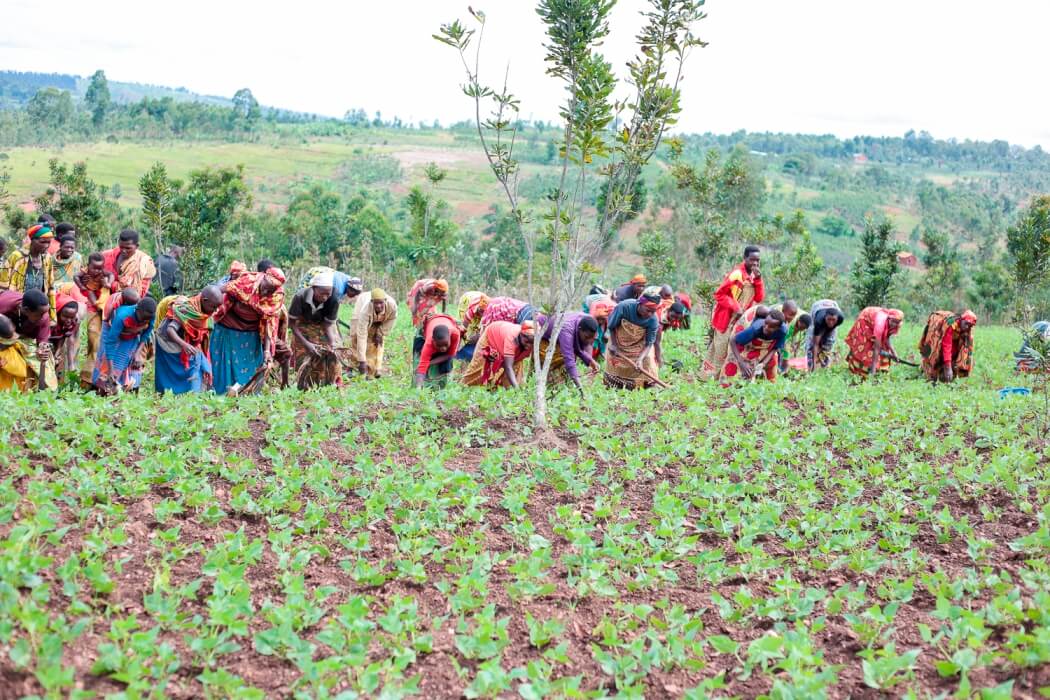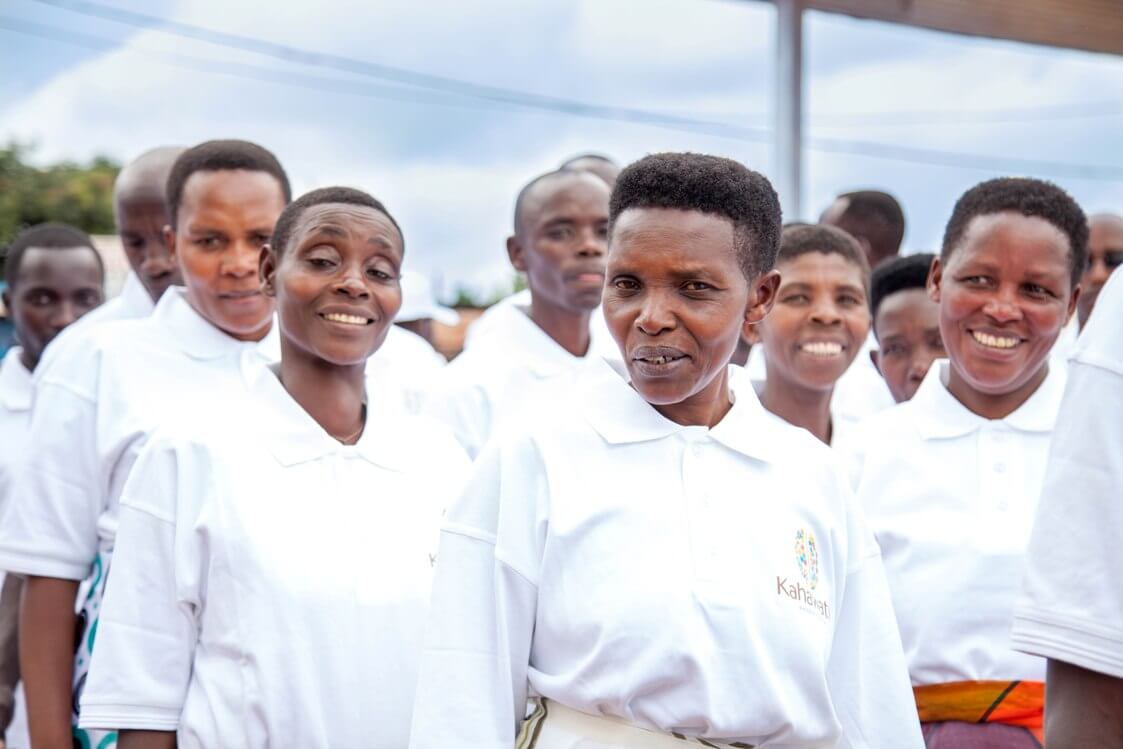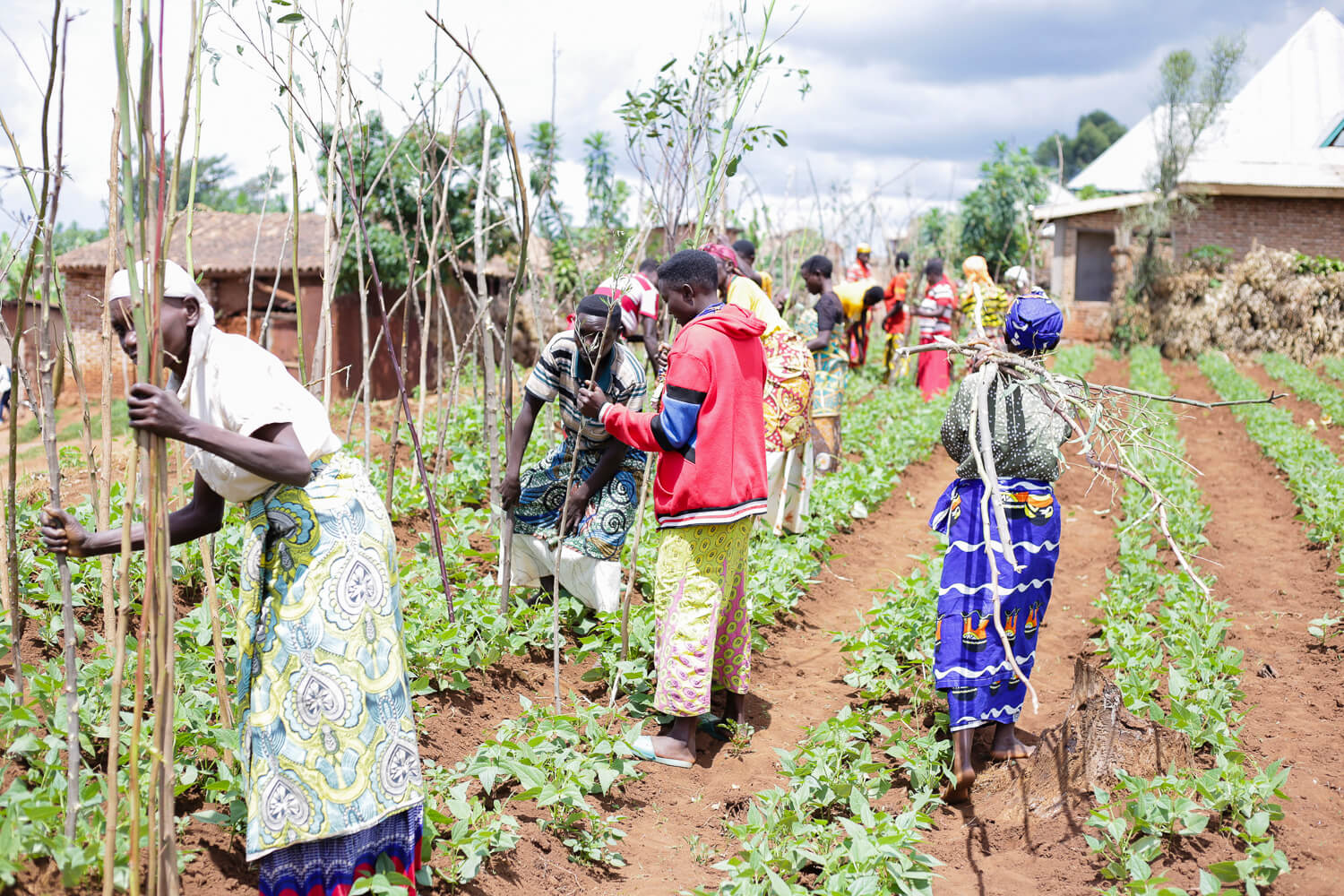In Burundi, women in rural communities have difficulties accessing land and credit. By forming associations, they become more empowered and can access collective or individual funding more easily. Our USAID-funded Tuyage project in Burundi (name for the Kirundi word meaning “let’s talk”) was designed to address gender equality by supporting female coffee farmers in Burundi.

In its first year, more than 406 members joined 7 new women’s associations. The program facilitated discussions and offered training programs that address the cultural, financial and legal barriers to women’s economic success. Of those women in the associations, 208 are applying entrepreneurship practices and starting their own businesses, and 400 are involved in Village Savings and Loan Associations. The associations have also started and maintained 8 demonstration plots for farmers and 272 women have been trained in good agricultural practices (GAP).
Women’s associations allow members to address their financial needs, build up savings, access microcredits, create and manage income-generating activities, diversify their sources of income, and more. Through the associations, women can have common or individual coffee plantations and other land purchased for common or individual agricultural initiatives, including: collective coffee farms purchased to extend their plots, collective land purchased for food crops, and land rented for common crops.

Women are supported with common income-generating micro- projects, such as soap manufacturing, processing flour for porridge, poultry rearing, fish breeding, and manufacturing feed for small livestock. They also have access to a platform that serves as a commercial entity to facilitate the grouped sale of their productions and to facilitate access to larger credits.
Acquiline is 45 years old and has a plantation of 1,250 coffee trees in Mwumba village, Ngozi. She told us how being a member of Mukenyezi Terimbere Association has benefited her.
As members of a women’s coffee association, we have received training not only on good agricultural practices, but also on financial literacy, which has allowed us to improve our livelihoods. After the dividend split, I bought my own plantation of 250 coffee trees and plan to open a food stand in the market with the dividends I will receive from the next split.
“I used to think that coffee farm work was only for men, but attending a training given by Kahawatu Foundation at Nzove Washing Station convinced me that I can maintain the coffee plantations too. Thanks to the adoption of good agricultural practices, our production increases every year.”
Stories of change
Amplifying voices from coffee communities.

Improve wellbeing , Professionalize farmers
Case study: Frederick’s story
 Burundi
Burundi
June 22, 2023
“In the 1990s and 2000s, the cultivation of coffee in our area was almost abandoned, but I did not stop

Build confidence , Professionalize farmers
Case study: Denyse’s story
 Rwanda
Rwanda
June 22, 2023
“Denyse completed secondary school but couldn’t afford to go to university so she started helping her parents in the farm.”

Build confidence , Improve wellbeing
Case study: The role of women’s associations
 Burundi
Burundi
June 22, 2023
“In the 1990s and 2000s, the cultivation of coffee in our area was almost abandoned, but I did not stop


